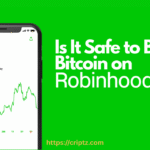If you’ve been using Bitcoin for a while or are new to cryptocurrency, you might wonder: Do Bitcoin addresses expire? Since Bitcoin addresses are at the heart of sending and receiving BTC, understanding their validity and lifespan is essential for both beginners and seasoned crypto users. The good news is that Bitcoin addresses do not expire, but there are important factors about their usage, privacy, and security you should know.
A Bitcoin address, the unique identifier used to send or receive BTC, is a cornerstone of the blockchain’s functionality. Understanding whether these addresses have an expiration date is essential for safeguarding your funds and optimizing your crypto experience.
This article explores the key facts and points surrounding Bitcoin address expiration, addressing common misconceptions, technical details, and best practices to ensure your assets remain secure in the ever-evolving crypto landscape.
What Is a Bitcoin Address?
A Bitcoin address is a string of alphanumeric characters (e.g., 1A1zP1eP5QGefi2DMPTfTL5SLmv7DivfNa) generated from a public key, which itself is derived from a private key via cryptographic algorithms. These addresses serve as destinations for sending and receiving Bitcoin on the blockchain. Unlike traditional bank accounts, Bitcoin addresses are not tied to personal information unless linked by a custodial service (e.g., an exchange). It’s generated from a public key using cryptographic hashing algorithms like SHA-256 and RIPEMD-160.
The Bitcoin protocol, designed by Satoshi Nakamoto, does not include a mechanism for addresses to expire, meaning an address remains valid as long as the blockchain exists. For example, the genesis block address from 2009 can still receive funds today, as confirmed by blockchain explorers like Blockchain.com.
Bitcoin addresses come in different formats:
- P2PKH (Legacy): Start with “1”
- P2SH: Start with “3”
- Bech32 (SegWit): Start with “bc1”
These addresses are stored in wallets, which can generate multiple addresses for enhanced privacy.
Do Bitcoin Addresses Have an Expiration Date?
No, Bitcoin addresses do not expire. Once created, a Bitcoin address remains valid forever on the blockchain. You can receive BTC to the same address years or even decades later—as long as you still control the private key associated with it.
For example:
- If you created a Bitcoin address in 2013, you can still use it today.
- Transactions sent to old addresses will still arrive in your wallet as long as you have the private key.
Do Bitcoin Addresses Expire on the Blockchain?
From a technical standpoint, Bitcoin addresses do not expire on the blockchain itself. Once generated, an address is a mathematical output of a public key, stored indefinitely on the Bitcoin ledger. The blockchain does not impose any time limits or “inactivity” rules that would deactivate an address. This means you can send Bitcoin to an address created years ago, and as long as the associated private key is accessible, the funds can be retrieved. For instance, dormant addresses holding significant BTC amounts, like those from the early 2010s, have been reactivated in 2025 to move millions of dollars, as reported on platforms like X. The only way an address becomes “unusable” is if the private key is lost, rendering the funds inaccessible—but the address itself remains valid indefinitely on the blockchain.
Why Bitcoin Addresses Don’t Expire?
Bitcoin’s architecture is decentralized and immutable, meaning:
- Addresses are mathematical outputs from cryptographic functions.
- The Bitcoin protocol doesn’t include any mechanism to deactivate or delete addresses.
- As long as the blockchain exists, your address will remain valid.
When It Might Seem Like an Address Expired?
While technically addresses never expire, some situations can make them unusable:
- Lost Private Key – If you lose access to the private key, the address is effectively unusable, even though it still exists on the blockchain.
- Exchange or Service Wallets – If an exchange or online service provided you with a deposit address and later closed your account, sending BTC there may result in loss of funds.
- Paper Wallet Damage – If your paper wallet is destroyed and you didn’t back up the keys, the funds at that address are permanently inaccessible.
Why Address Reuse Is Discouraged?
Although Bitcoin addresses don’t expire, reusing the same address for multiple transactions is strongly discouraged due to privacy and security risks. Each transaction on the Bitcoin blockchain is publicly visible, and reusing an address allows anyone to track your transaction history, potentially linking it to your identity if you interact with a KYC-compliant exchange. Additionally, address reuse can make you a target for hackers, as repeated use signals a potentially valuable wallet. The Bitcoin community, including developers on forums like Bitcointalk, recommends generating a new address for each transaction, a feature supported by most modern wallets via Hierarchical Deterministic (HD) wallet structures. For example, wallets like Trust Wallet or MetaMask automatically create new addresses to minimize these risks, ensuring your funds remain secure and private.
How to Check If an Old Bitcoin Address Still Works?
You can verify any Bitcoin address by:
- Using a blockchain explorer (like Blockchain.com, Blockchair, or BTCscan) to check for past transactions and current balance.
- Sending a small test transaction to ensure it’s still under your control.
If the address belongs to a third-party platform (like an exchange), always confirm with them before sending funds—deposit addresses can change over time for operational reasons.
Risks of Losing Access to Bitcoin Addresses
The closest concept to an address “expiring” is losing access to the private key, which effectively locks you out of the funds associated with that address. Unlike traditional banking, where you can recover an account, Bitcoin’s decentralized nature means no one can restore access without the private key. In 2025, an estimated 20% of Bitcoin’s circulating supply—roughly 3.9 million BTC—is considered lost due to forgotten keys or discarded wallets, based on analyses from Glassnode. To avoid this, store private keys or seed phrases securely using hardware wallets (e.g., Trezor Safe 5) or offline backups like encrypted USB drives. Regularly test your recovery process to ensure you can access your addresses, especially for long-term holdings.
Regulatory and Practical Considerations in 2025
In 2025, regulatory frameworks like the U.S.’s Bank Secrecy Act (BSA) and the EU’s MiCA don’t directly address Bitcoin address expiration but impose requirements on custodial platforms to monitor transactions and report suspicious activity. This can lead to exchanges flagging or limiting the use of old addresses for compliance purposes. Additionally, new IRS rules effective January 2025 require brokers to report digital asset transactions via Form 1099-DA, which may indirectly influence how custodial services manage addresses. Practically, if you’re using a Bitcoin address for large transactions, ensure it’s linked to a verified account on a reputable platform to avoid delays or freezes due to compliance checks. For non-custodial users, the blockchain’s permanence ensures your address remains functional, but staying updated on wallet software is crucial to avoid compatibility issues with newer Bitcoin network upgrades, such as Taproot adoption.
Best Practices for Managing Bitcoin Addresses
To maximize security and usability, follow these best practices for handling Bitcoin addresses in 2025:
- Use Non-Custodial Wallets: Opt for wallets like Electrum or Ledger Nano X to maintain full control over your addresses and private keys, avoiding reliance on third-party policies.
- Generate New Addresses: Create a new address for each transaction to enhance privacy and reduce security risks, as supported by HD wallets.
- Secure Your Private Keys: Store seed phrases offline in a safe or use hardware wallets to prevent loss or theft.
- Verify Exchange Policies: If using a custodial service, check their terms for address management, as some may deactivate old addresses for security reasons.
- Stay Informed on Regulations: Monitor updates from the IRS and FinCEN, especially with 2025’s new reporting requirements, to ensure compliance for large transactions.
Conclusion
Bitcoin addresses do not expire as part of the Bitcoin protocol, remaining valid indefinitely on the blockchain as long as the private key is accessible. However, custodial platforms like exchanges may impose policies that limit or deactivate old addresses, and reusing addresses can compromise privacy and security. In 2025, with increasing regulatory scrutiny and new reporting requirements, managing Bitcoin addresses wisely is more important than ever. By using non-custodial wallets, generating new addresses for each transaction, and securing private keys, you can ensure your Bitcoin remains safe and accessible. Stay informed about platform policies and evolving regulations to navigate the crypto space confidently, whether you’re holding BTC for the long term or transacting frequently.
Frequently Asked Questions
How long does a Bitcoin address last?
A Bitcoin address doesn’t expire and can be used indefinitely as long as you control its private key. However, for better privacy and security, it’s recommended to use a new address for each transaction to make tracking your activity harder. Some wallets automatically generate fresh addresses after each payment.
Do old Bitcoin addresses work?
Yes, old Bitcoin addresses still work as long as you have the private key linked to them. You can receive and send Bitcoin from these addresses anytime. However, reusing old addresses can reduce privacy, so many wallets suggest generating a new one for each transaction.
What happens if you send Bitcoin to an expired address?
Bitcoin addresses don’t expire, so sending BTC to an “expired” address will still work if the recipient controls its private key. If the owner lost access to that key, the funds become permanently inaccessible, with no way to reverse or recover the transaction.
Do Bitcoin addresses stay the same?
A Bitcoin address stays the same once created, but most wallets generate a new one for each transaction to improve privacy. You can keep using the same address if you wish, but this makes it easier for others to track your transaction history on the blockchain.
Can I use the same bitcoin address twice?
Yes, you can use the same Bitcoin address multiple times to receive funds, as it remains valid indefinitely. However, reusing addresses can compromise privacy since all transactions to that address are publicly visible on the blockchain. Many wallets recommend using a new address for each payment.
Can I use an old BTC address?
Yes, you can use an old BTC address as long as you still have its private key. It will still receive and send Bitcoin without issue. However, reusing old addresses may reduce privacy, so many wallets suggest generating a fresh address for each transaction.
Alexander Lorenzo is a seasoned crypto educator at Criptz, Alexander contributes high-quality educational content aimed at helping both new and experienced users understand the evolving world of blockchain and cryptocurrency. He continues to be a trusted voice in the industry, offering clarity in a fast-moving market. Whether you’re just starting or looking to sharpen your skills, his content delivers real value.
Why Trust CRIPTZ?
At criptz.com, we bring you up-to-the-minute cryptocurrency news and expert analysis in 2025. Our seasoned team delivers accurate coverage of market trends, blockchain breakthroughs, and emerging innovations, backed by strict editorial standards. With 24/7 reporting on price movements, regulations, and tech advancements, we empower traders and investors to navigate the fast-paced crypto world with confidence. Count on Criptz.com for trustworthy insights into digital assets.






